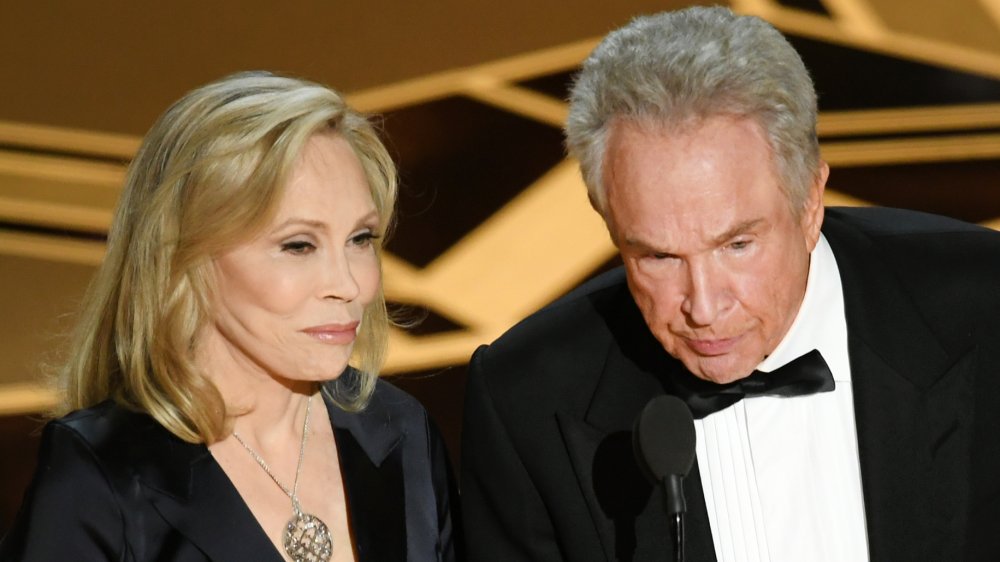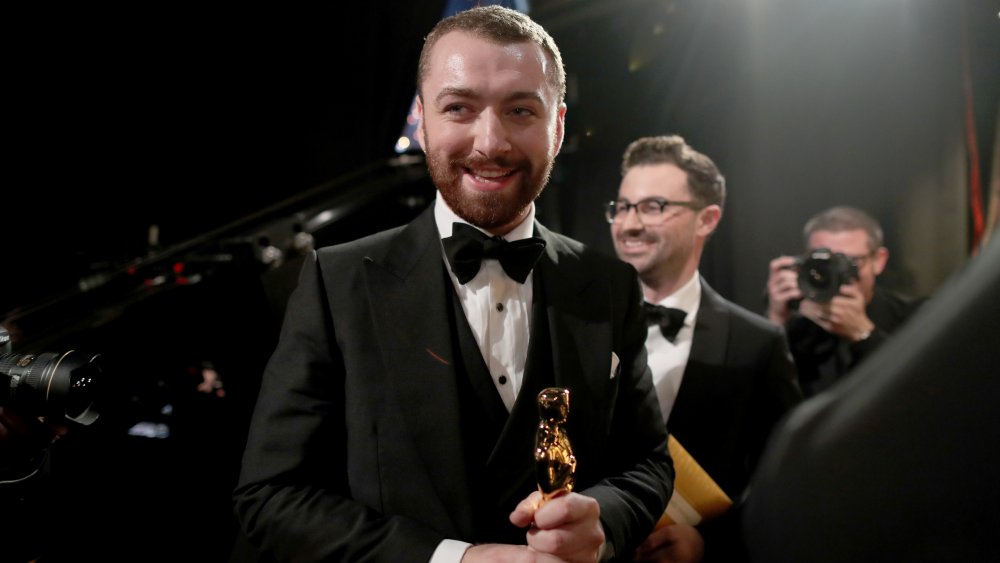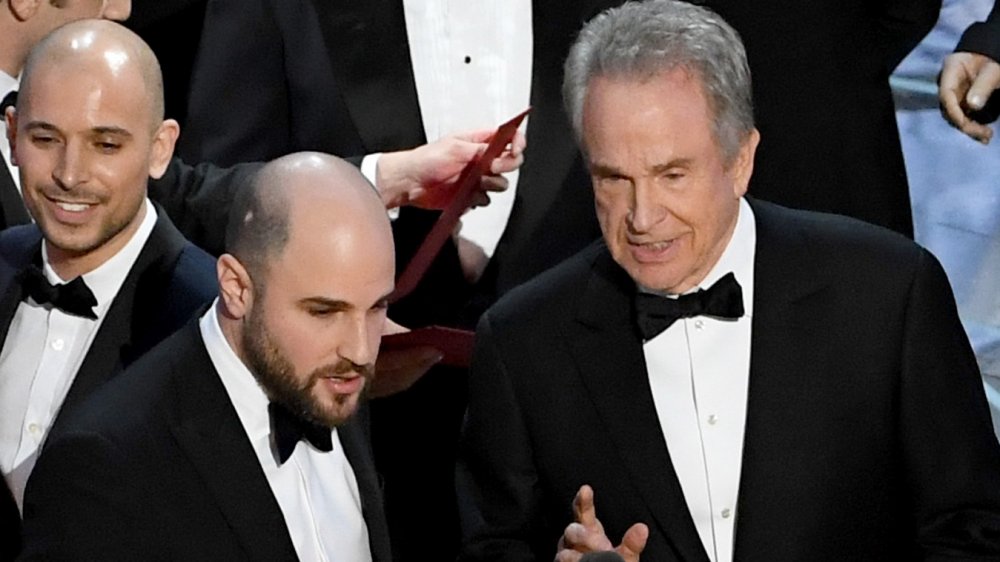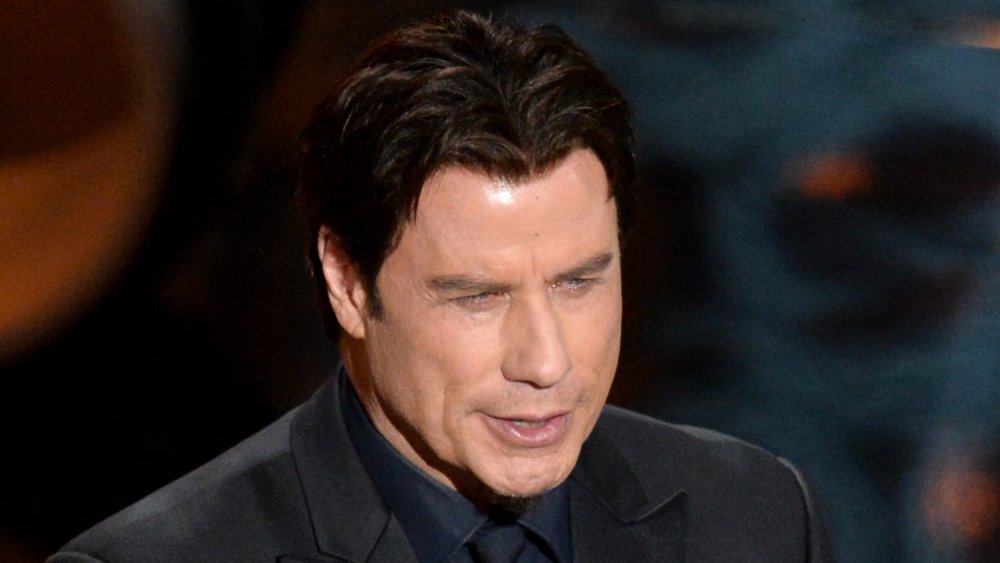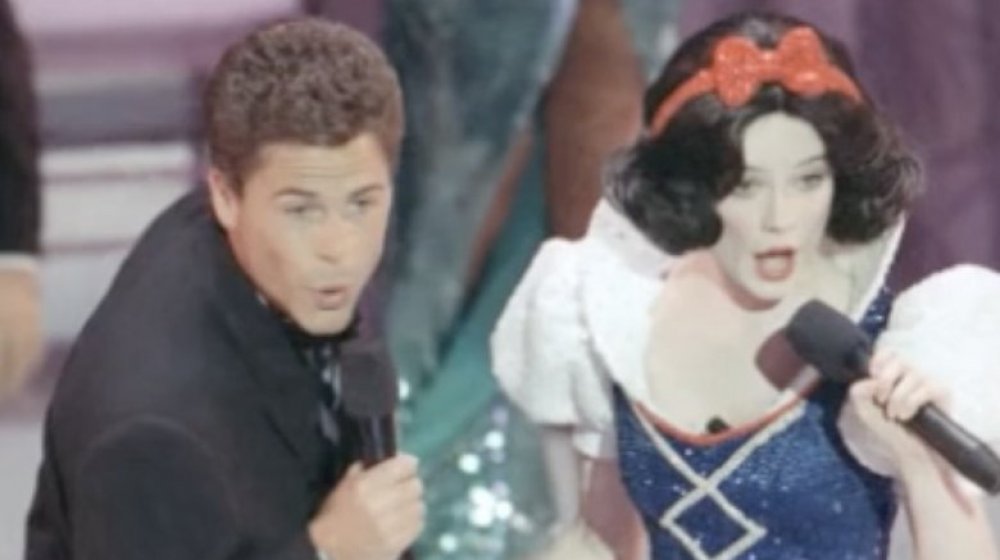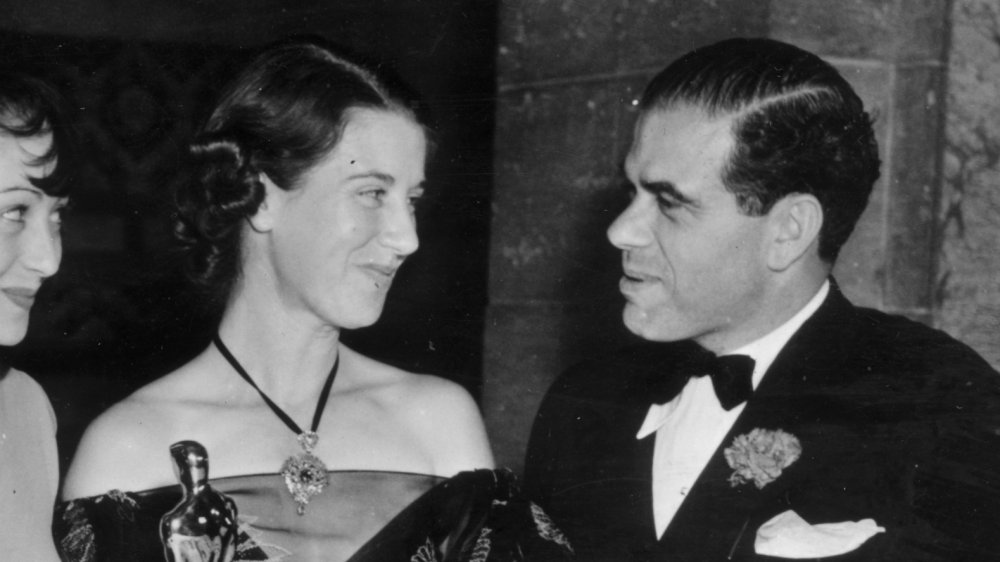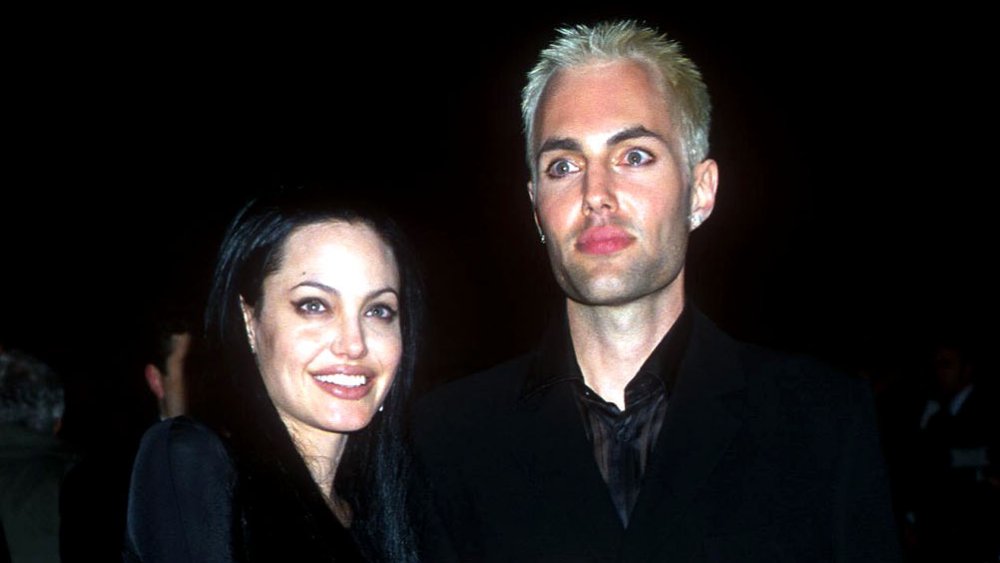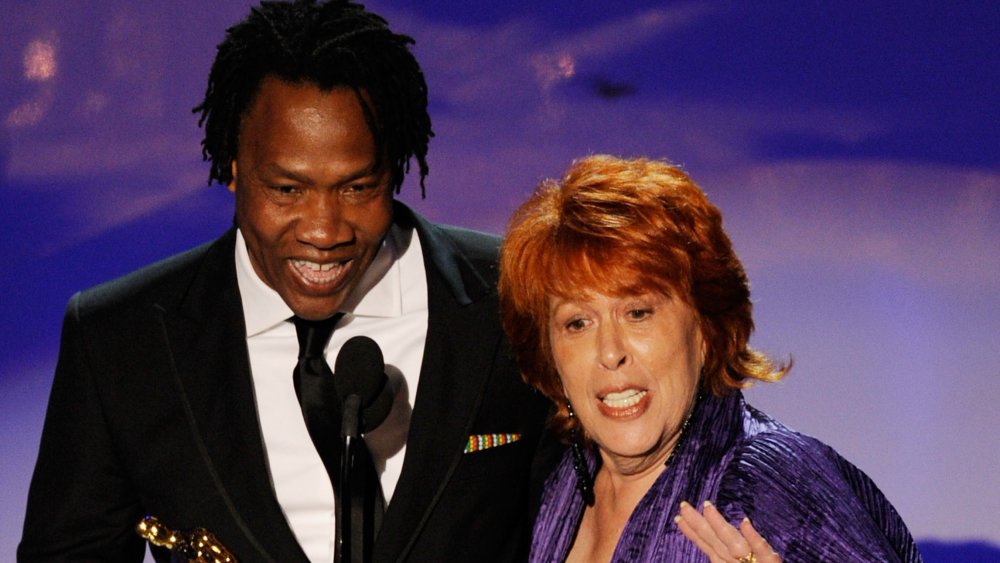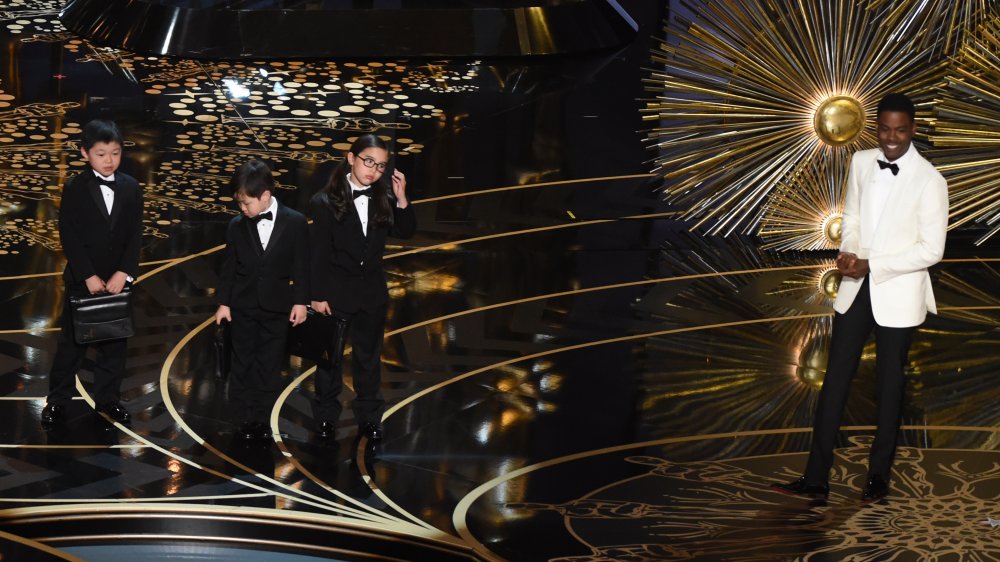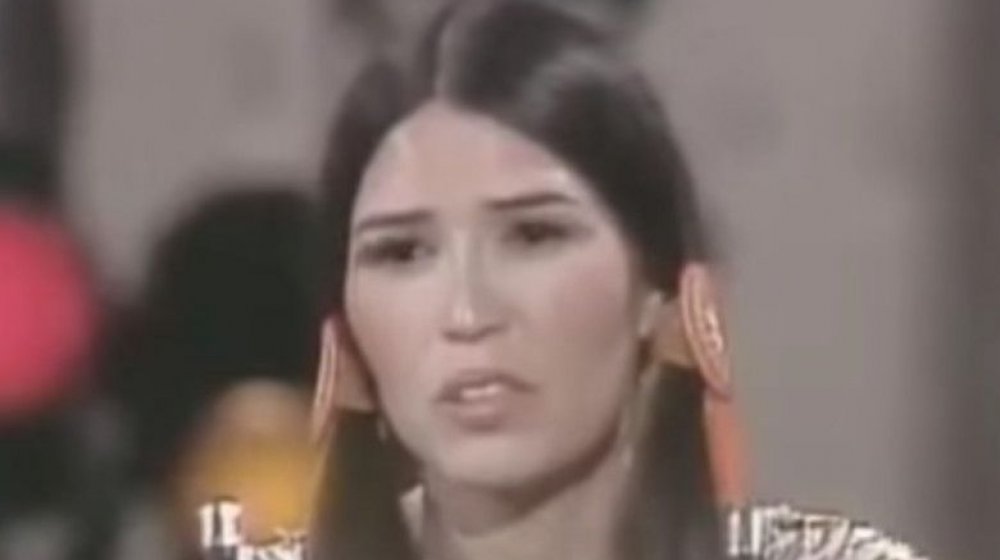The Most Disastrous Oscar Moments Ever
The Oscars are "Hollywood's biggest night," and even the most serious and reclusive of actors will put on their fanciest clothes and head down to the Dolby Theatre if there's a chance they or someone they work with might win one of those elusive little gold statues. The hours-long show is broadcast live to millions of viewers around the world, with a massive crew working together to present a glamorous, entertaining, and emotionally resonant evening, while movie industry professionals wait around to see if they'll earn filmmaking's most important honor.
But with so many people and so much pressure involved at the Oscars, there's a big chance for things to go wrong. And when things can go wrong, they generally do go wrong. For example, hot mics get a little too hot, envelopes and teleprompters fail, jokes flop, and earnest sentiments get taken the wrong way. Over the past 90 years, the Academy Awards have given the world as many fascinatingly awful experiences as they've provided ones of triumph and exhilaration. Here are the cringiest Oscars moments of all time.
Sam Smith doesn't know his Oscar history
Shortly after taking home a Grammy Award for best new artist, Sam Smith received another prize historically offered up to newly minted stars: Like Adele, Sheena Easton, and Duran Duran before him, Smith got to do a James Bond movie theme song. He both co-wrote and performed "Writing's on the Wall" from the 2015 film Spectre, and it won Smith the Academy Award for best original song.
Alongside songwriting partner Jimmy Napes, a rightfully elated Smith took the stage at the Oscars to give his acceptance speech: "I read an article a few months ago by Sir Ian McKellen, and he said that no openly gay man had ever won an Oscar, and if this is the case — even if it isn't the case — I want to dedicate this to the LGBT community all around the world. I stand here tonight as a proud gay man and I hope we can all stand together as equals one day."
As rousing a message that is, it's not remotely accurate. As pointed out by Salon, the McKellen article Smith referenced was specifically about how no openly gay man had ever won the Oscar for best actor. Then The New York Times proved Smith was wrong by publishing a list of the many LGBTQ+ individuals who had won an Academy Award before, from screenwriter Dustin Lance Black (Milk) to previous best song winner Elton John (The Lion King). Oops.
Best picture, worst mistake
The craziest thing happened at the 2017 Academy Awards, when the honor of presenting best picture fell to Hollywood legends and Bonnie & Clyde co-stars Warren Beatty and Faye Dunaway. After the nominees were announced, Beatty opened the enveloped and read the words inside, but seemed perplexed. Dunaway, visibly annoyed or at least aware of the deafening silence dragging on, took the job off Beatty's hands, looked down, and said the first printed words she saw: "La La Land." The movie's producers triumphantly took the stage and thanked the people who made the dreamy musical possible, while a lot of rushing around and chaos went on behind them. La La Land's Jordan Horowitz took the mic, finally, and revealed, "There's a mistake. Moonlight, you guys won Best Picture." Horowitz then held up the prize envelope to reveal that, indeed, Moonlight won, prompting that movie's crew to hit the stage.
Only after the debacle was it made clear how such a huge error happened. According to The Hollywood Reporter, one of the PricewaterhouseCoopers accountants tasked with making sure the right papers got handed to the presenters didn't do their job and gave Beatty the previously opened best actress envelope, which read, "Emma Stone, La La Land." Dunaway saw the name of the movie and ran with it.
Introducing the other exquisitely voiced singer named Adele
In many ways, John Travolta is an ideal Academy Award presenter, particularly for a performance of one of the tunes nominated for best original song. A two-time nominee for best actor in the music-heavy films Saturday Night Fever and Pulp Fiction, he's probably better known for singing and dancing his way through Grease and Hairspray. But while music came easy for Travolta, speaking words regularly did not at the 2014 Oscars ceremony. His duty: read a speech off the teleprompter and throw to Idina Menzel so she could sing "Let It Go" from Frozen. The speech was a little much, with Travolta giving praise to both the "gorgeously empowering" tune and its "wickedly talented" singer. But then, at the very end, when Travolta was just supposed to say "Idina Menzel" and get out of the way, he instead bafflingly mispronounced her name as "Adele Dazeem."
On an appearance on Jimmy Kimmel Live! a year later, Travolta blamed the gaffe on a backstage encounter with Goldie Hawn. "Now, Goldie Hawn is charismatic, sexy, beautiful," he told host Jimmy Kimmel. "And I was starstruck! I'm starstruck, hugging and loving her up, and forgetting that I have to go and do this bit, and they said, 'You're on.'" Right before he took the stage, a crew member told Travolta that the teleprompter would display a "phonetic spelling" of Menzel's name, a method which the actor explained he "didn't rehearse."
Not a high Oscars moment for Rob Lowe
All those times in the '90s when Billy Crystal hosted the Academy Awards and opened the broadcast with a medley of song parodies about the nominated films might seem corny in retrospect, but those were high art compared to what they replaced. The 1989 Oscars broadcast opened with, as it often had, a big musical number, but none The Hollywood Reporter would call a "nightmare."
First, the Disney representation of Snow White (portrayed by an unknown actress named Eileen Bowman) ran up to celebs sitting in their seats while squeakily singing her way through a movie-themed parody of "I Only Have Eyes for You." Then Merv Griffin showed up to sing his 1950 novelty hit, "I've Got a Lovely Bunch of Coconuts," in a fake nightclub scene while a bunch of old-to-the-point-of-no-longer-recognizable movie stars looked on. Nearby, Bowman danced wildly, until Griffin stopped her to let her know her date had arrived — Brat Pack hunk Rob Lowe, for some reason. Together, they sang another song parody, this time of "Proud Mary." And those are just the highlights of a bombastic sequence that went on for 11 minutes.
How bad was it? Bowman quit acting and literally left Hollywood the next day, while producer Allan Carr dropped out of the movie industry for a decade.
He tried to be Frank, but he wasn't the right one
The name "Frank" feels like a throwback — there don't seem to be as many guys with that moniker now as there were in, say, the mid-20th century. Indeed, Hollywood was lousy with directors named Frank in the 1930s, including Frank Lloyd and Frank Capra. At the 6th Academy Awards in 1934, Frank Lloyd of Cavalcade and Frank Capra of Lady for a Day competed in the best director category, and to see who would succeed the previous year's winner, Frank Borzage for Bad Girl.
Presenting that particular award that evening: humorist Will Rogers. When it came time to announce the winner, he didn't say, "And the Oscar goes to..." or something like that, opting instead for a little speech, according to Legends Revealed. "I've watched this young man for a long time. It couldn't happen to a nicer guy," Rogers proclaimed. "Come up and get it, Frank!" Rogers shouldn't have used just a first name in a category in which two of the three nominees were named Frank. Capra shouldn't have assumed he was the Frank that Rogers was talking about. He headed up to the stage to grab his Oscar, until he noticed that the spotlight was trailing Frank Lloyd. Well, that's just embarrassing.
Angelina Jolie made Hollywood into the city of brotherly love
Today, Angelina Jolie is known primarily as a globetrotting humanitarian member of Hollywood royalty who doesn't make as many movies as she once did, deigning to participate in projects with redeeming value or which allow her to appear graceful and powerful. This is a completely different Angelina Jolie than the one who was the talk of the 2000 Academy Awards. Jolie actually won an Oscar that night, best supporting actress for her breakout role in Girl Interrupted. What's better remembered, however, is how she pawed at and slobbered all over her brother (and lookalike) James Haven both before and throughout the show.
"I'm in shock and I'm so in love with my brother right now," Jolie said with a laugh, which prompted not a knowing or supporting laughter from the audience of her peers, but instead a palpably weird silence. "He just held me and said he loved me and I know he's so happy for me, and thank you for that," Jolie added, and with no audible reaction from the assembly. After delivering a standard acceptance speech, Jolie returned to the subject of her brother. "Jamie, I have nothing without you," she gushed. "You are the strongest, most amazing man I've ever known, I love you." That's all a little much, but it's more than the non-acknowledgement Hilary Swank gave to her husband, Chad Lowe, when she won an Oscar later that night.
A good, old-fashioned Oscars fight
The most surprising moment of the 2010 Academy Awards was not when The Hurt Locker upset Avatar to win best picture, but when a behind-the-scenes squabble spilled out onto the stage during the presentation of the otherwise scandal-free award for best documentary short. Music by Prudence, a film about inspiring Zimbabwean musician Prudence Mabhena, won an Oscar for director Roger Ross Williams and producer Elinor Burkett. While both were officially winners, only Williams took the stage to accept ... at first. "Two years ago, when I got on an airplane and went to Zimbabwe, I never imagined in my most wildest dreams that I'd end up here. This is so exciting," Williams said, until Burkett ran up next to him, cut him off, and started giving her dramatic, prepared remarks about the power of the film's subject material.
What exactly happened there? "The director and I had a bad difference over the direction of the film that resulted in a lawsuit that has settled amicably out of court," Burkett told Salon. She added that she and Williams weren't speaking, and she hadn't been invited to any Oscars-related events, so she took matters into her own hands. "When he won, he raced up there to accept the award. And his mother took her cane and blocked me. So I couldn't get up there very fast." Uh, thanks, mom?
Chris Rock's Oscars joke didn't add up
Arguably the most boring part of any Oscars telecast is the part when the host thanks the team of accountants who tally and keep secure those Academy Awards votes. It's a necessary, if subtle, way to let viewers know that the procedures surrounding the ceremony are legitimate and taken seriously. When hosting the 2016 Academy Awards, host Chris Rock attempted to inject some humor into this well-known, albeit lamented, tradition.
First, Rock introduced representatives of accounting firm PriceWaterhouseCoopers, who assigned "their most dedicated, accurate, and hard-working representatives" to count ballots, the comedian said, per the Los Angeles Times. "Please welcome Ming Zhu, Bao Ling, and David Moskowitz." From the wings emerged three children, dressed in suits and holding briefcases. Also, they were all of Asian descent, alluding to the stereotype that people from that part of the world are good at math. The crowd didn't laugh much, and Rock had a zinger loaded up. "If anybody's upset about that joke, just tweet about it on your phone that was also made by these kids." Oof.
Weeks later, after prominent Asian and Asian-American film professionals, including Ang Lee, George Takei, and Sandra Oh, sent the Academy a letter of protest, the Academy publicly apologized.
Hey, that's not Marlon Brando
A critical and commercial smash, The Godfather also represented a comeback vehicle for former screen idol Marlon Brando. The epic 1972 crime family saga was a favorite to take home some, if not all, of the many Academy Award nominations it received, particularly a best actor statuette for Brando. What a TV moment it would make when Brando, one of the world's greatest living actors, accepted his award for leading the cast of one of the finest films ever made. But when presenter Liv Ullmann read his name, Brando didn't take the stage — a young woman named Sacheen Littlefeather, president of the National Native American Affirmative Image Committee, did.
Littlefeather was active in the American Indian Movement, which made headlines in early 1973 for siege on Wounded Knee, South Dakota. The cause found an ally in Brando, who sent Littlefeather to decline his award as a protest against "the treatment of American Indians today by the film industry," the activist said, interrupted by boos from some of the Hollywood elite.
While Littlefeather received some cheers and a smattering of applause, some members of the Academy responded to Brando and Littlefeather's protest with some unnecessarily catty remarks. When presenting best actress, Raquel Welch quipped, "I hope they haven't got a cause," and when Clint Eastwood handed out the trophy for best picture, he said he was doing it "on behalf of all the cowboys shot in John Ford westerns over the years."

